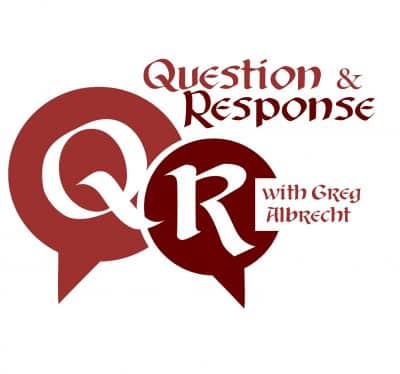Q&R with Brad Jersak – Handling politicized faith
Question
I am experiencing friends, family and ministers who continually pressure me with their political platform and tell me I’m not even a Christian if I don’t vote for their party. How shall I respond?
Response
A difficult question. As I see it, you have three options:
1. You can ignore them. That is, you may value the connection with that person but perceive that your relationship is not strong enough to honestly confront what they are saying and doing. Perhaps ignoring their messages or posts is the best you can do for your mental and emotional health. And maybe your silent response will send enough of a message that if they are sensitive, they will tone it down or back off. The problem with this option is that sometimes, our conscience tells us that silence is tacit agreement or complicity to what is not right. Or in our silence, we may stew our way into passive-aggressive resentment. Clearly, something is lost in the relationship and needs to be grieved.
2. You can debate them. That is, while we try to avoid hostility, our integrity may require us to speak out our convictions and offer counterpoints. If the relationship is mature enough to handle disagreement and hold the tension, then it can become an opportunity to hear opposing points of view without breaking fellowship. We can even collaborate in the pursuit of truth.
Love consents to differences of opinion, competing convictions and even embraces “authentic otherness.” It is good to have people in our lives of whom we do not require sameness. But in this case, you are describing people who seem to value being right so highly that they are willing to bombard you with their opinions without hearing yours. They have gone so far as to make accusations that deny your faith for the sake of partisan politics. I cover this in A More Christlike Way under the chapter titled “partisan amoralism,” where I describe how people conflate faith and even negate Jesus with their party’s talking points. When a conversation begins that way, there is more heat than light and little room for a real conversation.
3. You can set boundaries. If it seems like neither silence nor debate will work (which is usually the case), then you might establish boundaries around political conversation. In the case of social media bombardment, you can simply “unfollow” these folks. That isn’t the same as “unfriend,” by the way. It simply means that their posts won’t be flooding your social media feed. You won’t have to see what they are flailing away at.
But when they target you directly with political propaganda, if you find it upsetting and anxiety-inducing, then you may need to express your boundaries directly. You might say, “This is a topic about which we disagree and I don’t believe either of us will budge. I don’t know that we can truly hear each other. We can agree to disagree but I believe engaging in further debate will harm a relationship that I value. So let’s pull the plug on it before we find ourselves breaking fellowship.”
Of these three options, the second option–friendly engagement with folks who see the world differently–is the best way to love our neighbors, love the stranger and even love our enemies (political or otherwise). I wish we could always operate that way in all our relations.
But in this current season, the tragic marriage of religion (I can’t call it ‘faith’) and politics is so toxic and the level of rancor so enflamed that healthy boundaries may be the only way we can preserve relationships. I think we can have sincere conversations about our families, our health, our work, our trials, etc. without needing to make it political. Certainly, if we can’t talk about Jesus without raising the question of political loyalty, then we know we’re dealing with an idol. Better to deliberately cordon off that area of conversation … and to say so if we need to.









 Plain Truth Ministries | Box 300 | Pasadena, CA 91129-0300
Plain Truth Ministries | Box 300 | Pasadena, CA 91129-0300

